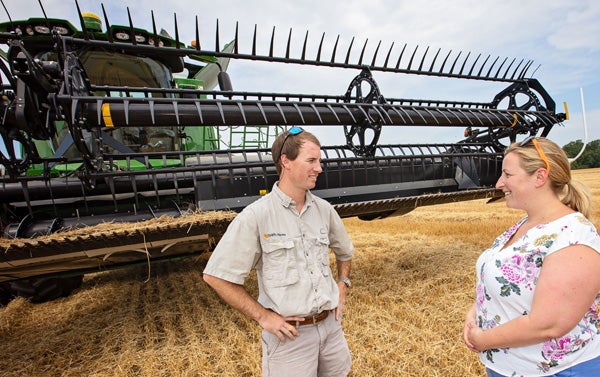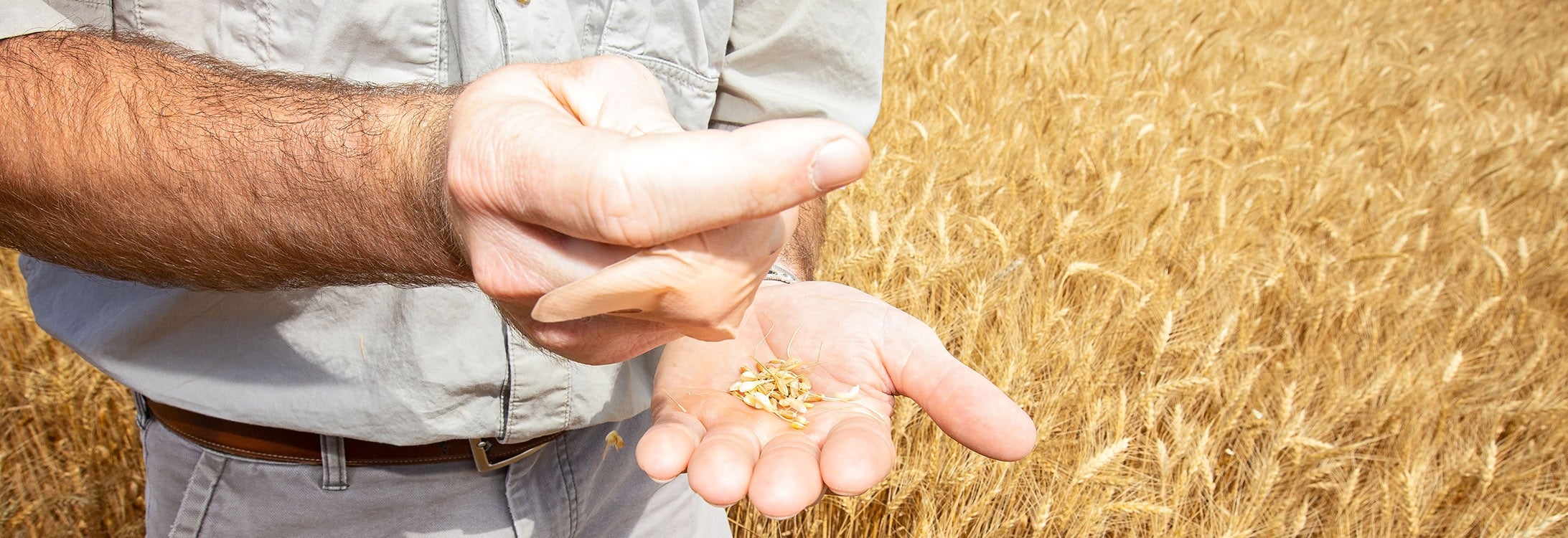THE SCOPE
The stresses facing North Carolina’s farmers are not unique, which is why officials at the North Carolina Agromedicine Institute hope that the statewide work they are doing will one day have a larger reach.
“Nationally and internationally, we hear daily that farmers are under stress for very similar reasons,” said the institute’s director and ECU faculty member Dr. Robin Tutor Marcom.

British hog farmer Angela Kirkwood talks with third-generation North Carolina farmer Archie Griffin while on a recent trip to learn more about U.S. agricultural practices.
(Photos by Cliff Hollis)
The International Society for Agricultural Safety and Health recently announced the behavioral health of farmers as a priority, Tutor Marcom said.
“And now that they have had the floods and the bad weather in the Midwest, the farmers there are experiencing things similar to what we experienced with the hurricanes,” she added. “And certainly the tariffs and the market issues stretch across the country.”
Angela Kirkwood is a hog farmer from Yorkshire, England, who recently received an 18-month scholarship to travel around the world to learn more about agriculture. In May, she spent two weeks in Kentucky and North Carolina. A few weeks prior to that, she was in London trying to influence members of Parliament on how to give agriculture direction in the United Kingdom.
“I would say the stress in the American agricultural industry is very similar to that of the U.K. We have real problems in the U.K., where farmers and farm workers have the second highest suicide rate, just under ex-military,” Kirkwood said. “It’s similar stresses with financial stresses, with the unknown of what the weather is going to do. And it’s all things that are out of your control.”
There is also pressure on U.K. farmers from supermarkets driving down the margin for farmers “while their own profits are booming,” and also negative publicity, targeting and intimidation from anti-farming lobbyists, Kirkwood added.
“This puts a real stress and pressure on farmers who are already working long hours to do their best for the animals that they care for and to produce food for the general public,” she said. “And when farmers are then put down by negative publicity, it is really hard for them to power through with positivity.”
Having studied agriculture internationally, Kirkwood said it is clear farm stress is a “wider industry issue.”
“I think being able to talk about mental health breaks the stigma,” she said. “They say there is a cliff edge and you don’t want people to get to that cliff edge. You want them to be able to deal with the problem before they get to the cliff edge.”
